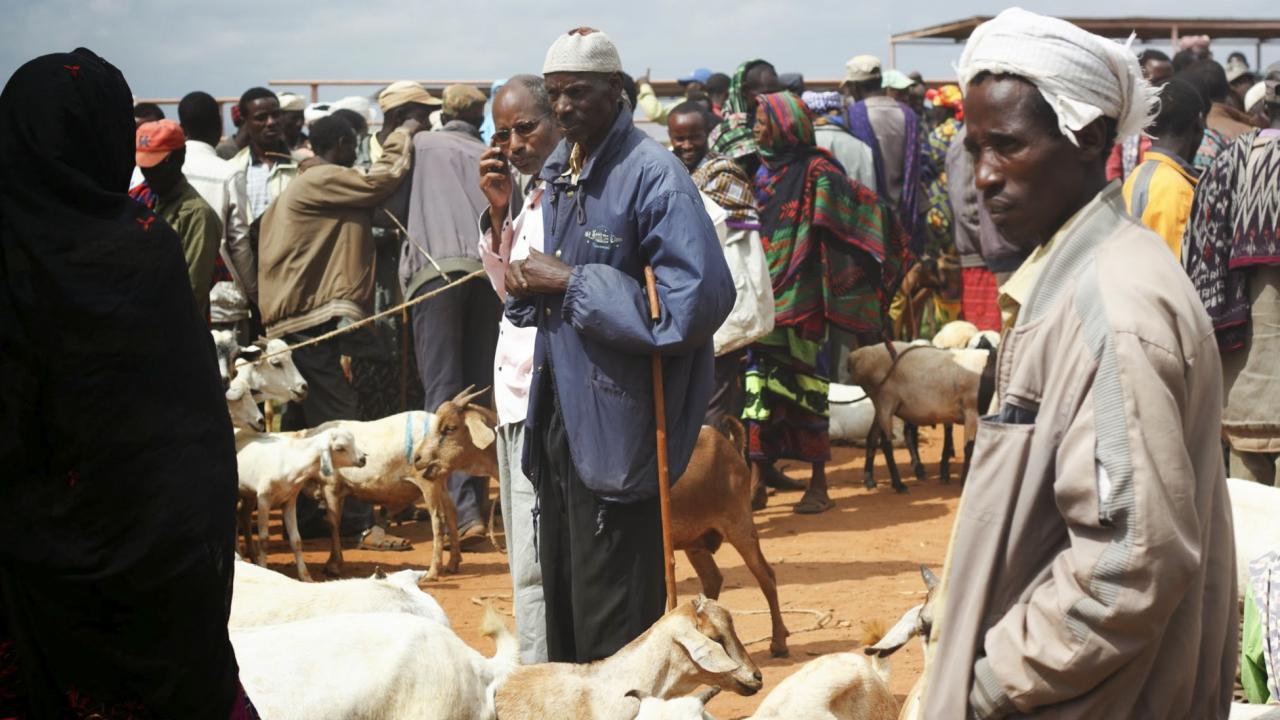
The Index Based Livestock Insurance (IBLI) and the Hunger Safety Net Programme (HSNP) are among the most prominent social safety net programs in Kenya and in Sub-Saharan Africa. These programs have a common objective of protecting livelihoods from shocks, but they rely on very different logics and mechanisms. These differences could have important consequences in terms of impact on pastoralists’ wellbeing and productive investments.
Both programs rely in part on normalized difference vegetation index (NDVI) based indices. These are measurements of vegetation cover on the ground made by satellite. However, the precise NDVI data sources and the processing of the NDVI data are quite different. The development of multiple distinct NDVI-based forage indices offers a research opportunity to assess and compare the performance of a variety of indices as the base for index based livestock insurance.
Project Summary
Researchers funded by the Feed the Future Innovation Lab for Assets and Market Access Global Action Network (GAN) will examine a range of drought-related indices based on data sources and parameters used by HSNP and IBLI. This will help determine which index is most appropriate for an index insurance product that aims to protect households from drought related shocks. It will also explore the quality of indices depending on methods of raw data aggregation.
The team will compare two NDVI indices currently used for index insurance products. One index, eMODIS (NDVI_eMODIS), composited and filtered by the US Geological Survey, is publicly available at no charge but comes with a five-week lag. BOKU (NDVI_BOKU) is an index based on data filtered in near-real-time by Universität für Bodenkultur Wien, though this project will focus on accuracy rather than timeliness. The BOKU index is provided for a fee to Kenya’s National Drought Monitoring Authority (NDMA), who then provide the data for HSNP.
By developing hypothetical insurance policies for Kenya and Ethiopia using parameters from the asset replacement products available in Marsabit in 20122014 and in Ethiopia from 2012-2015. We will then backcast indemnity payments for the period covered by the household surveys and calculate actuarial premium payments to assess their relative value to the customers.
Anticipated Impacts
The results can inform policy choices in Kenya and Ethiopia, and pave the way for future assessment of index insurance value in order to design appropriate insurance products for herders and farmers. This research is of interest to the broad community of researchers and practitioners that use NDVI to monitor for a range of related shocks and is of immediate interest to the IBLI and HSNP programs as they scale up.
